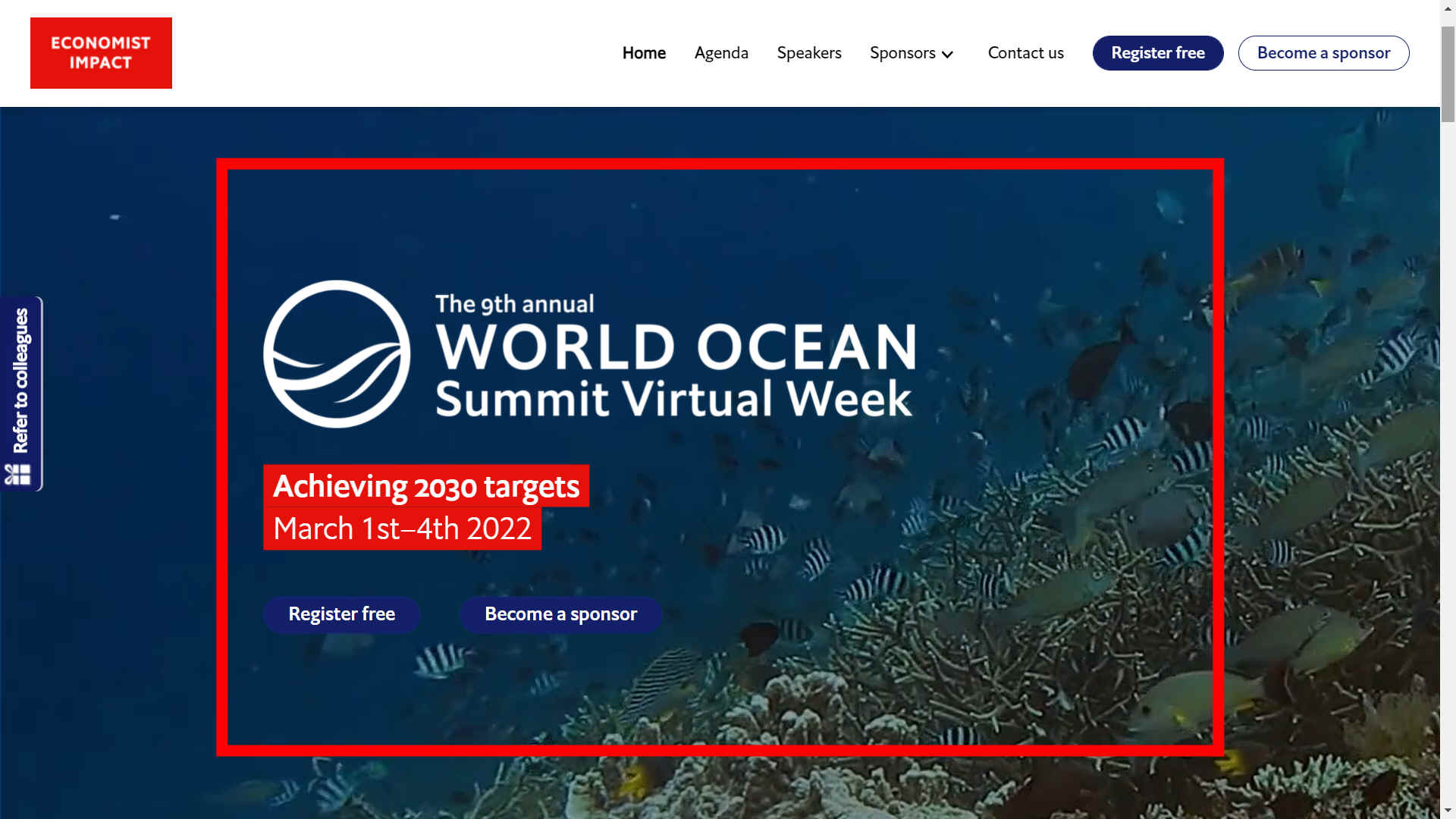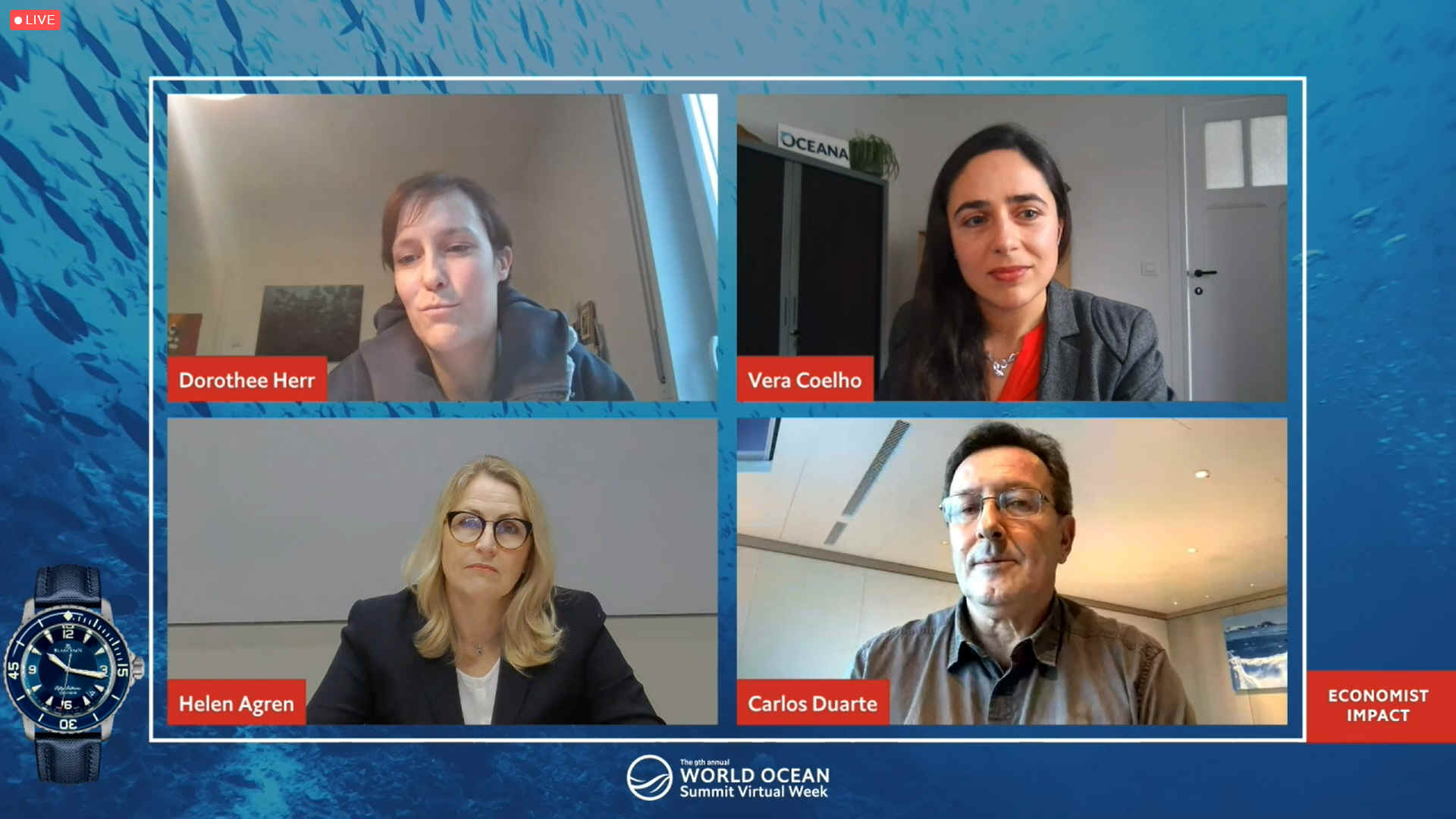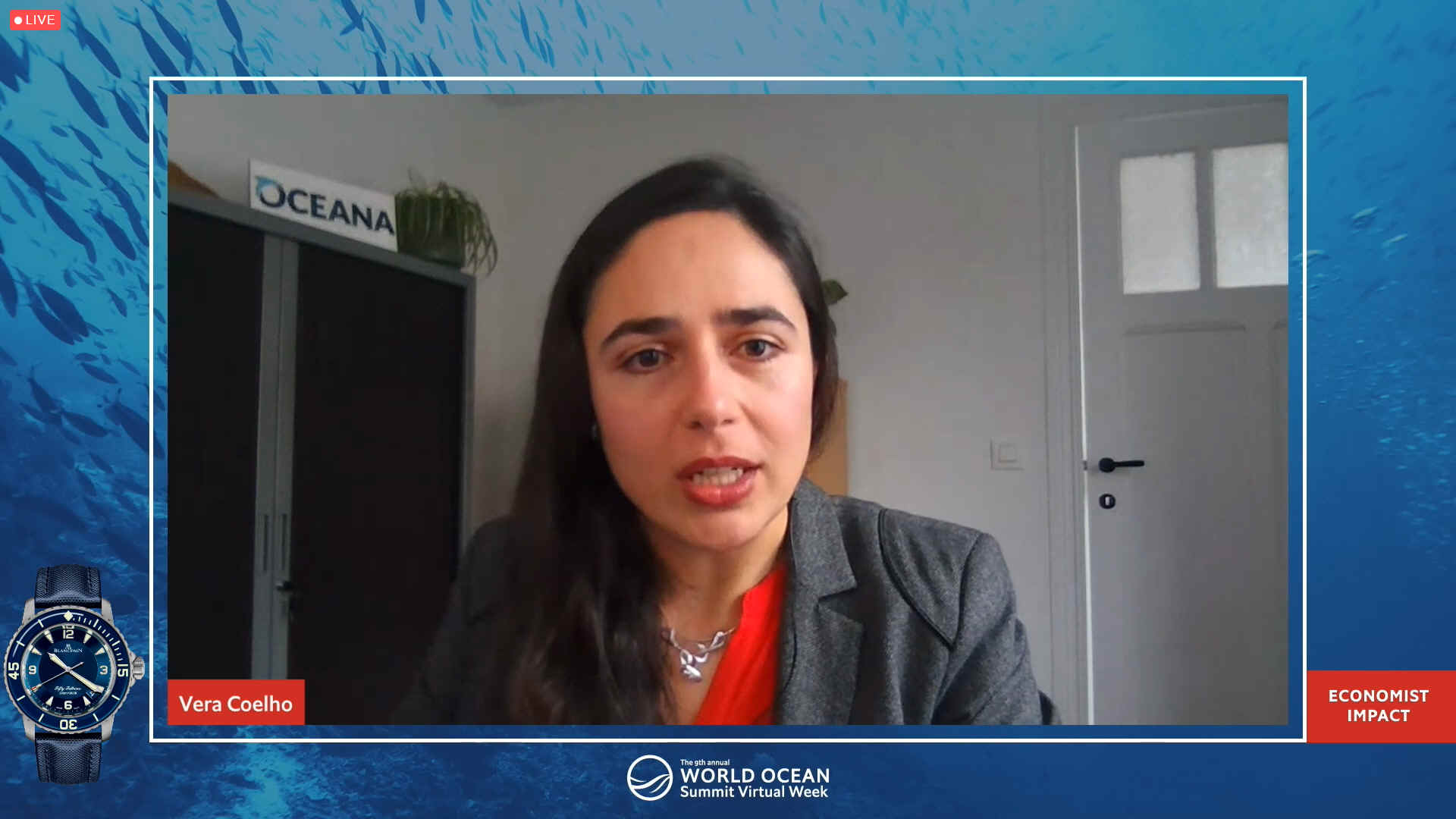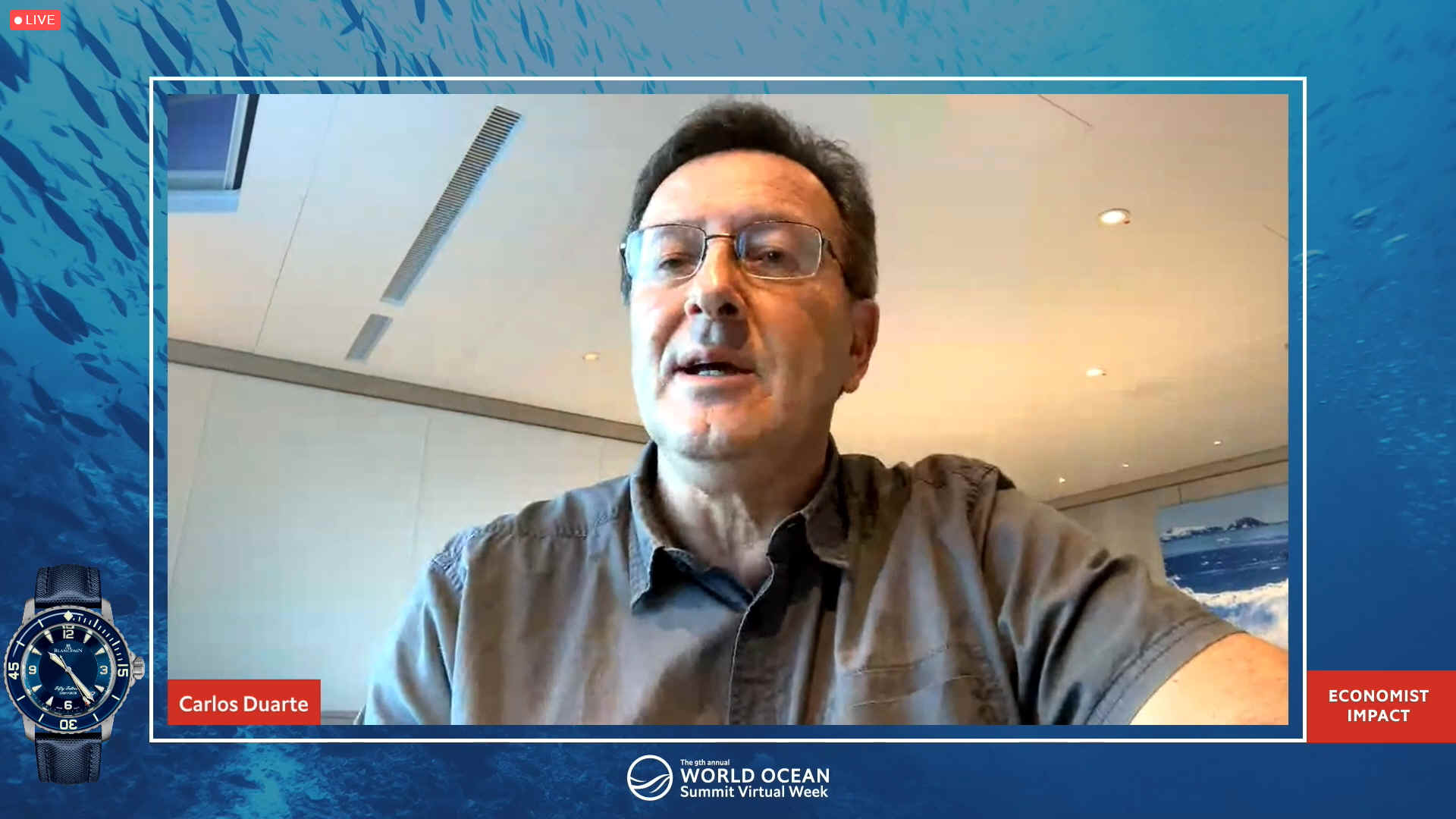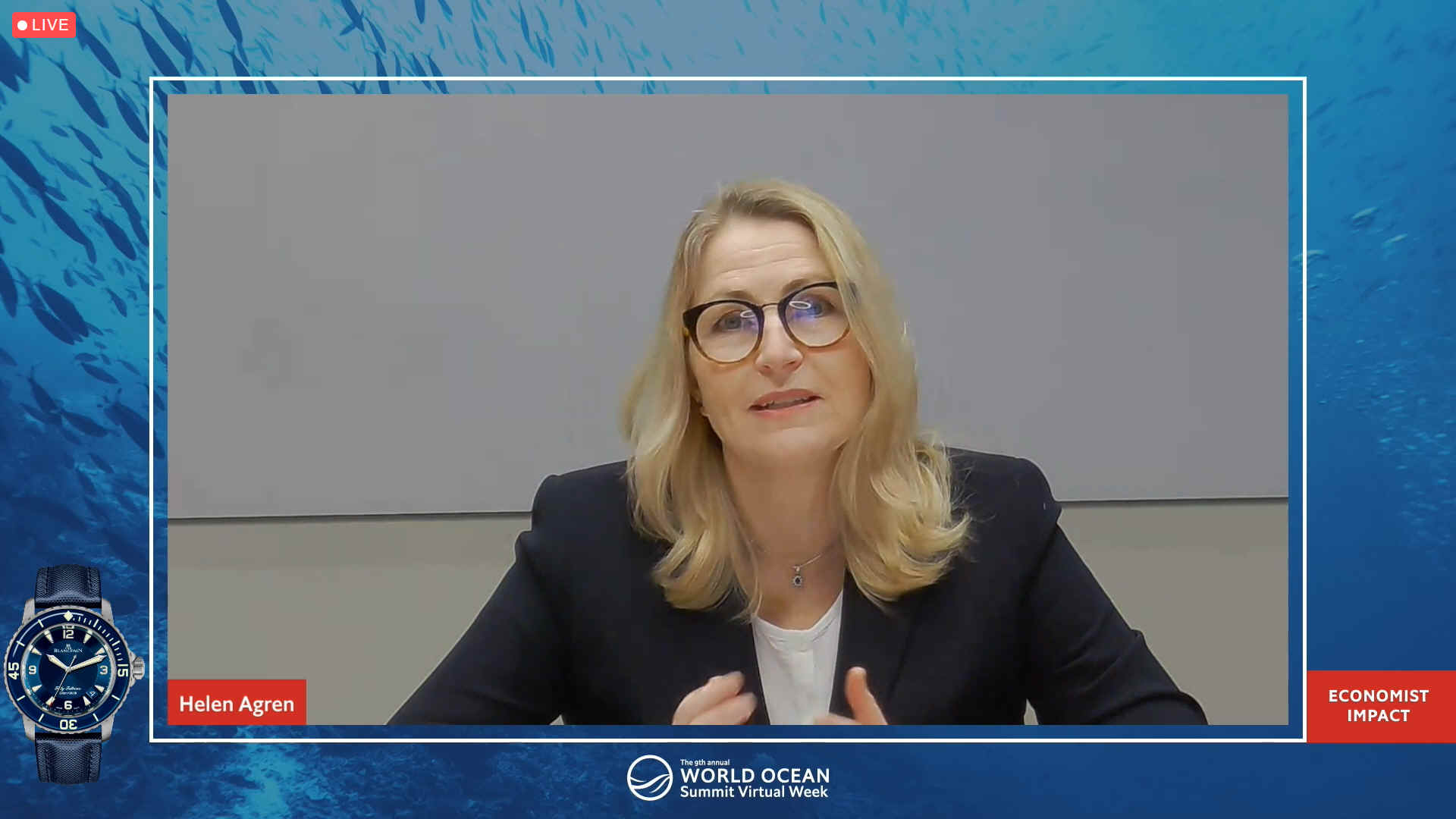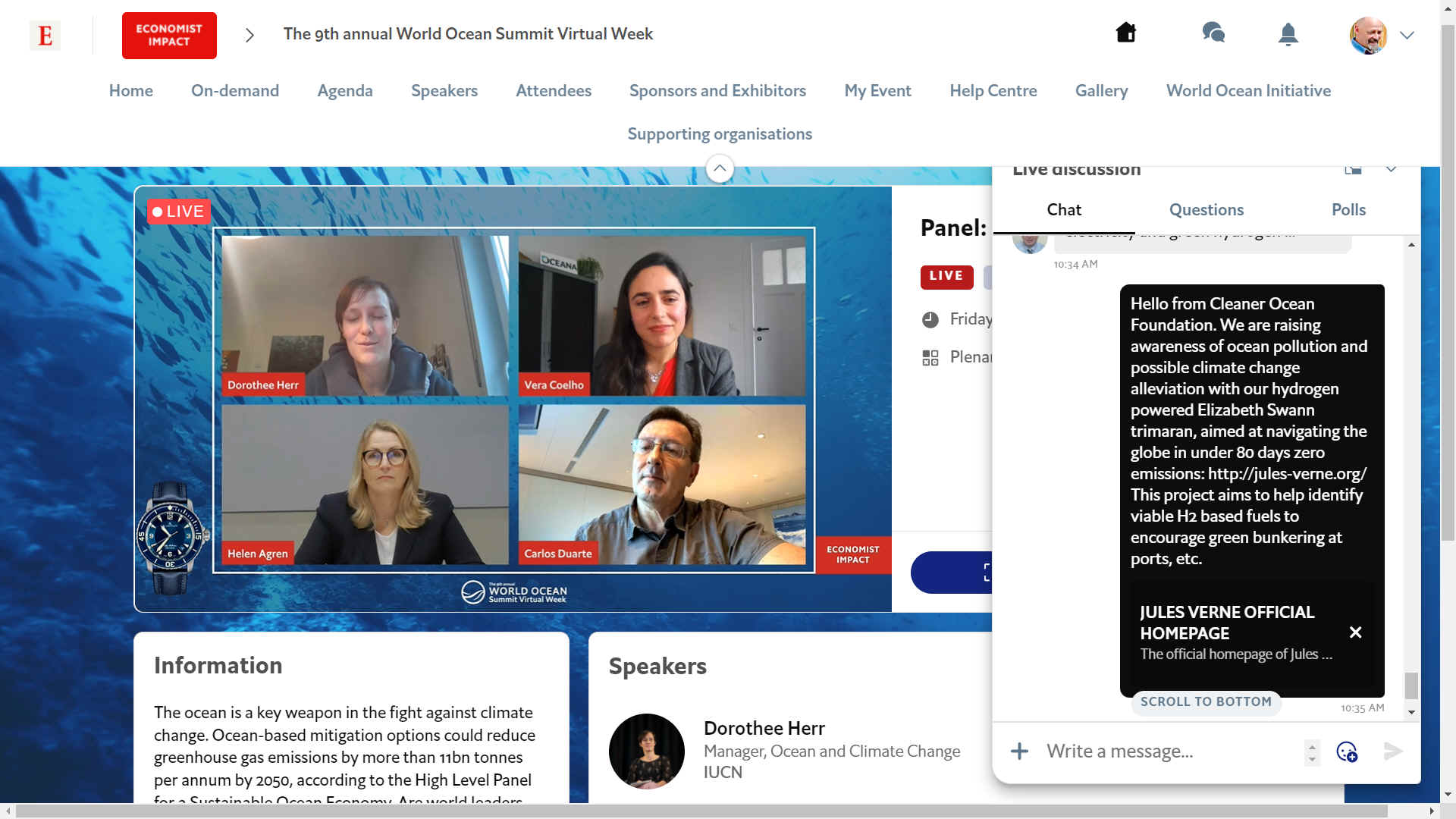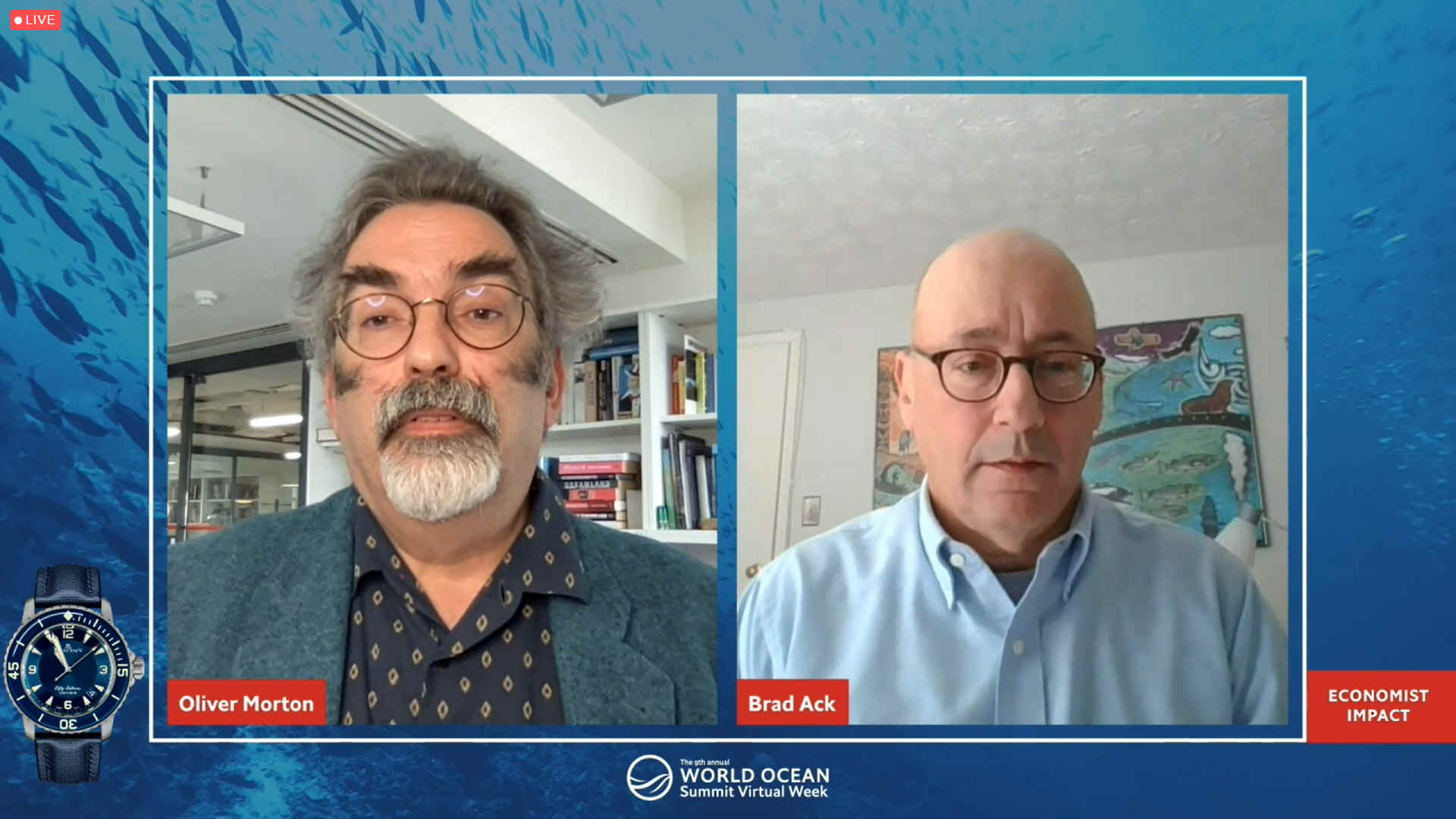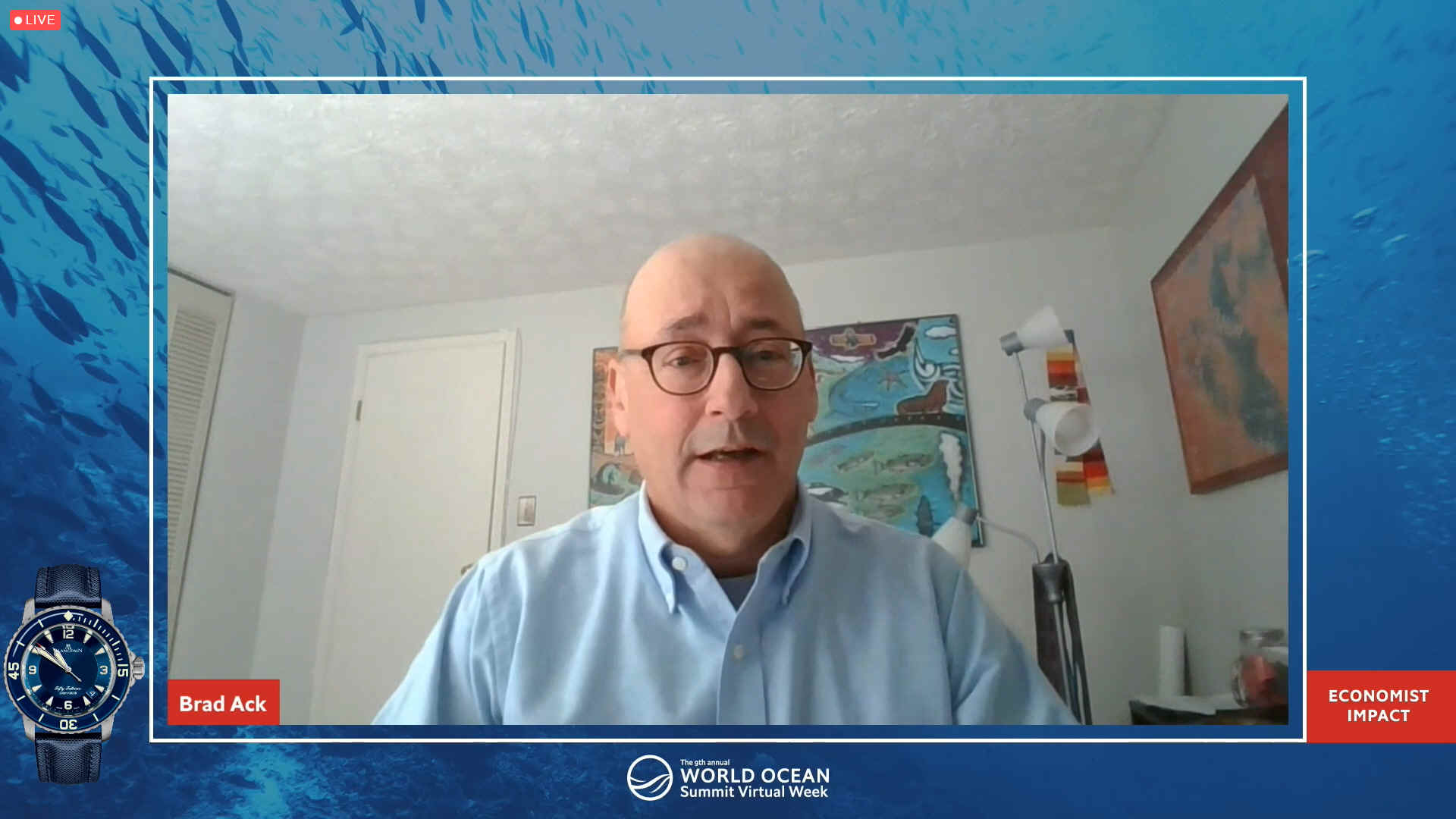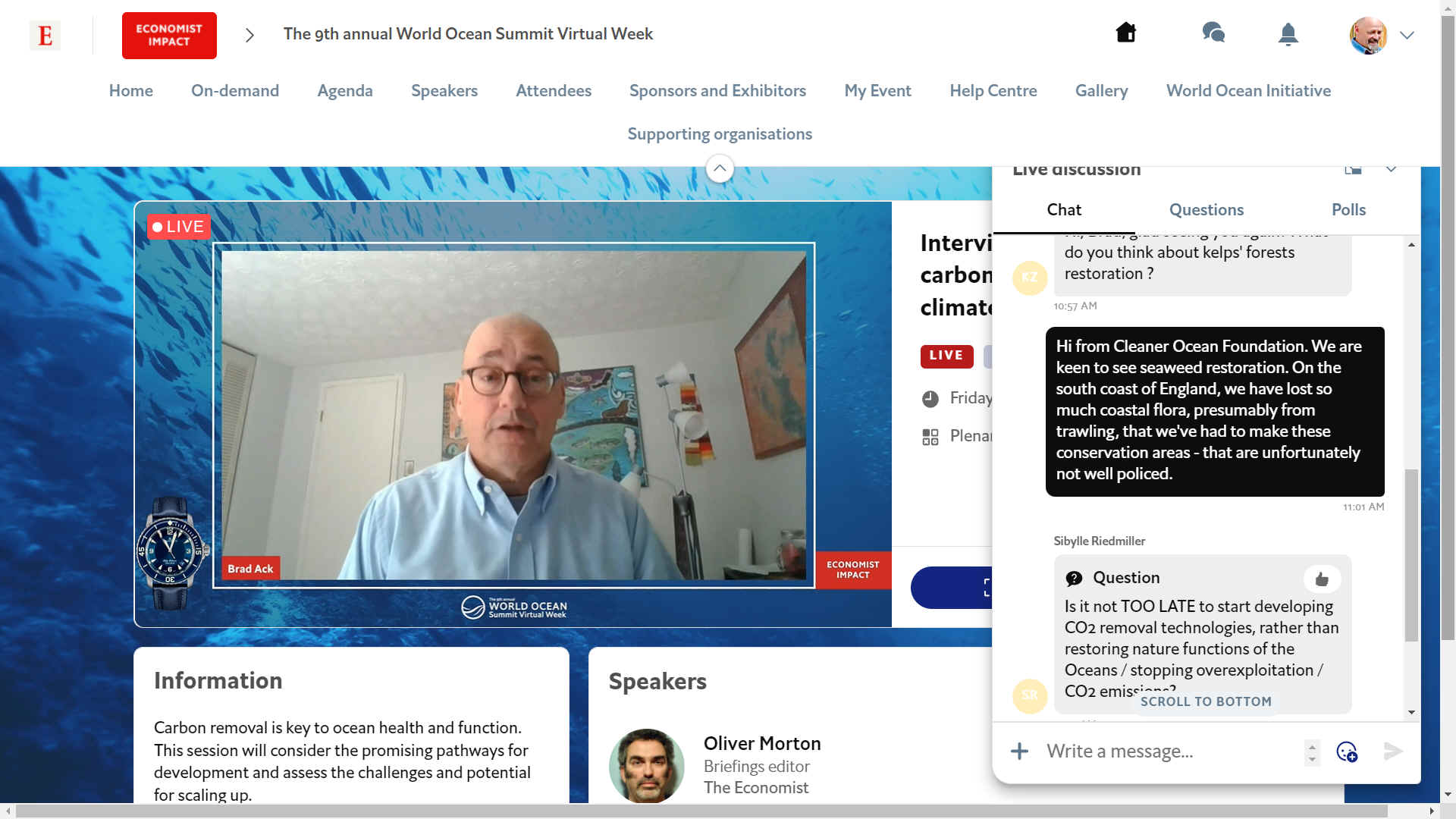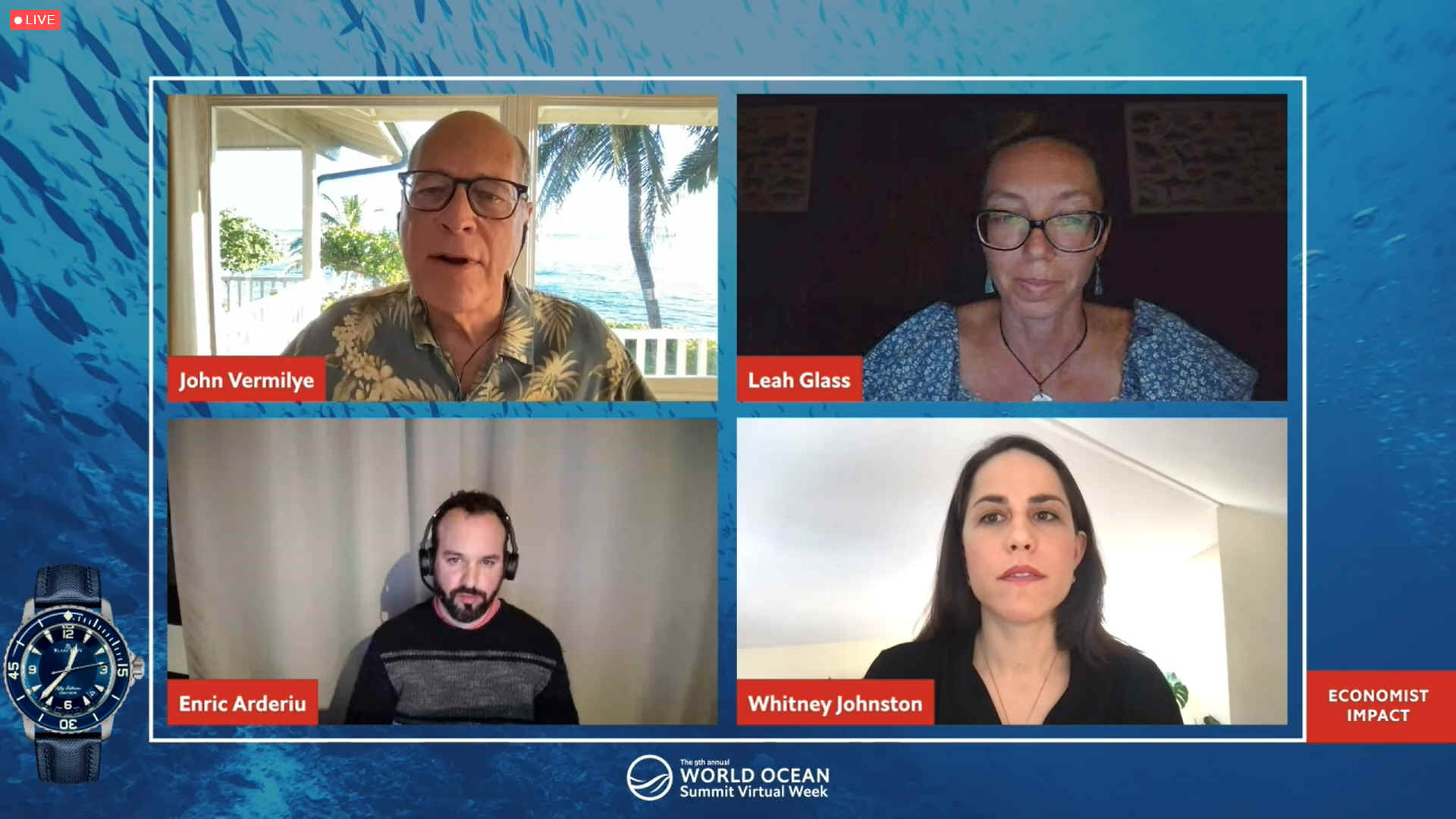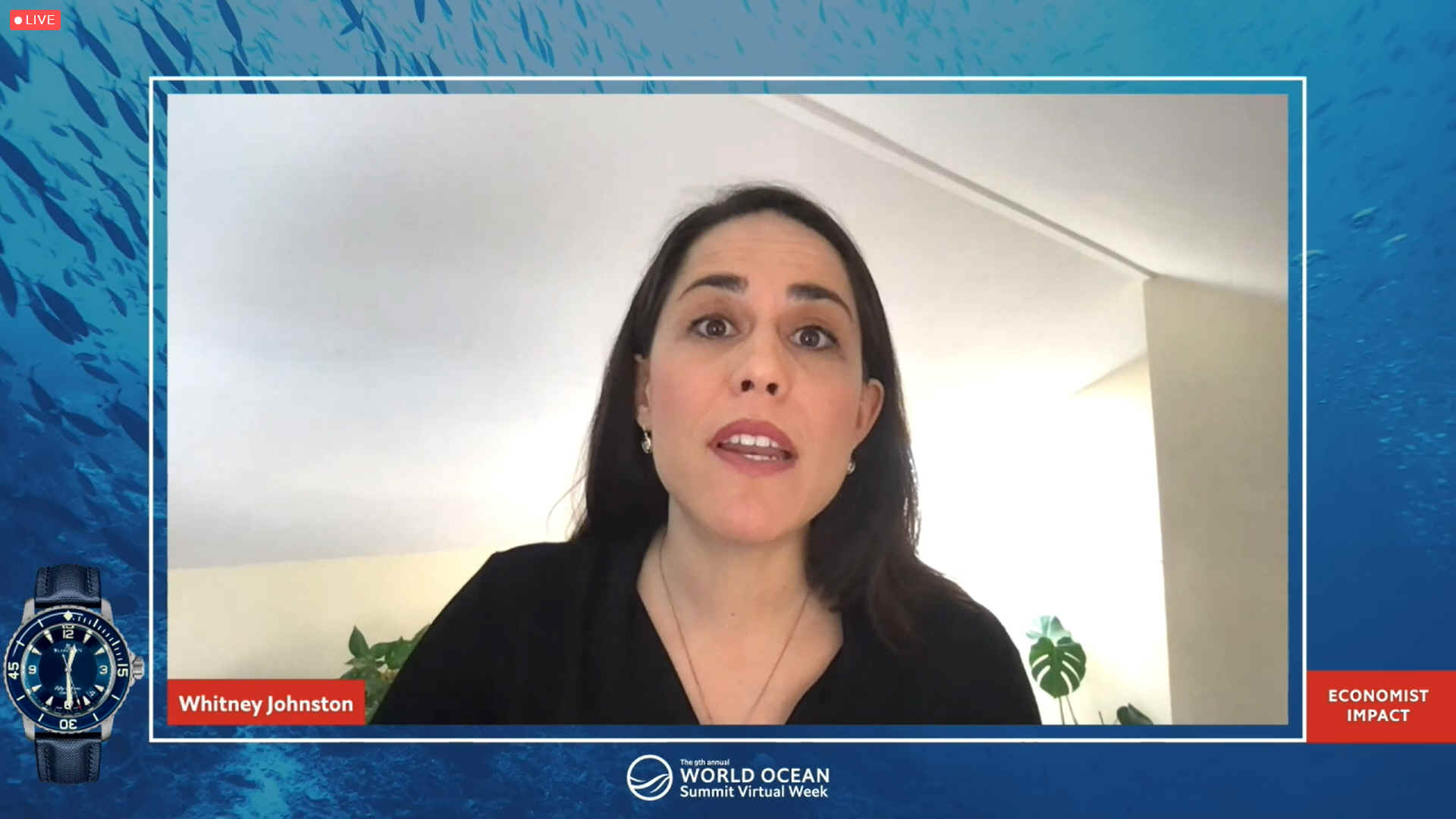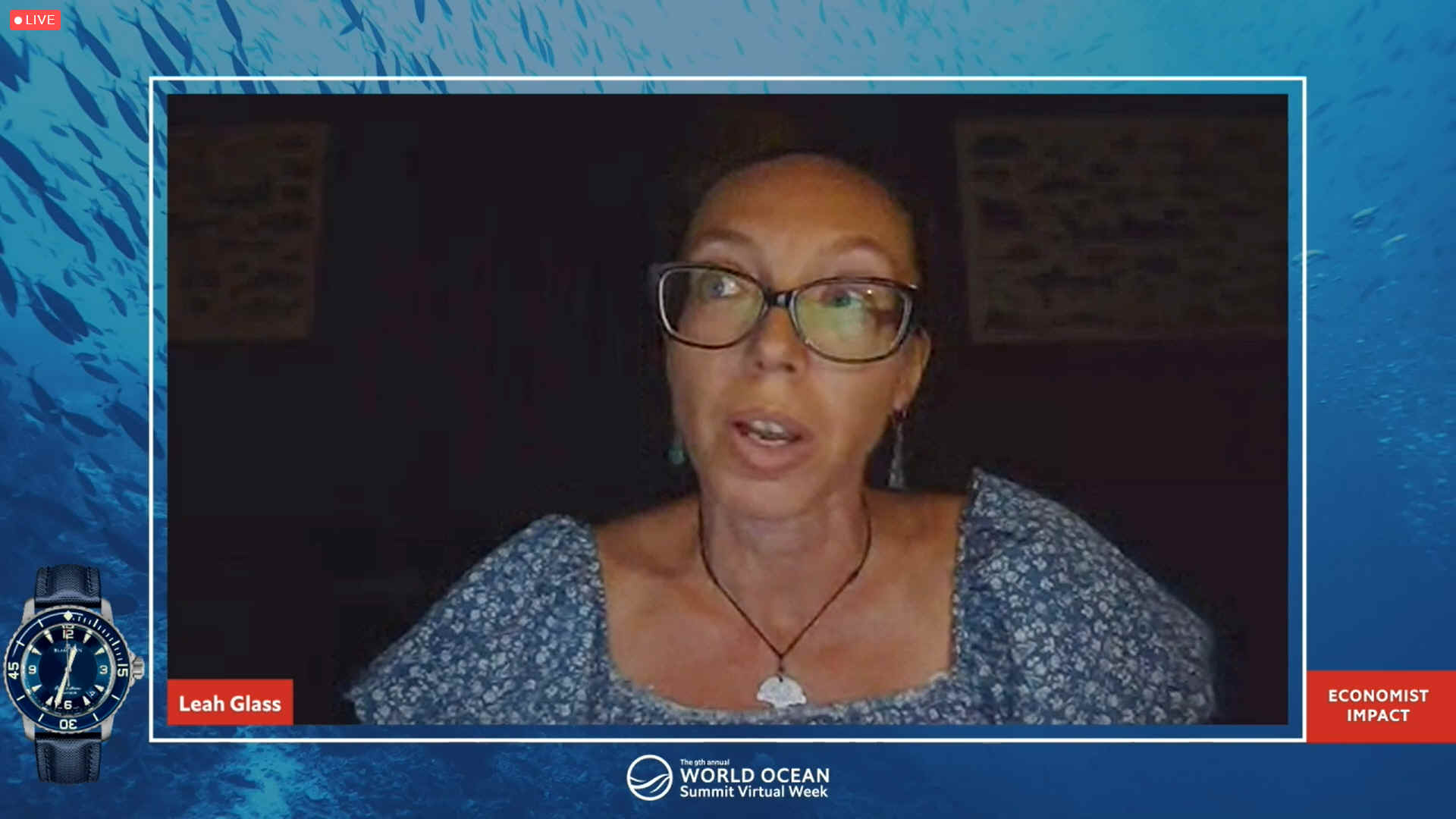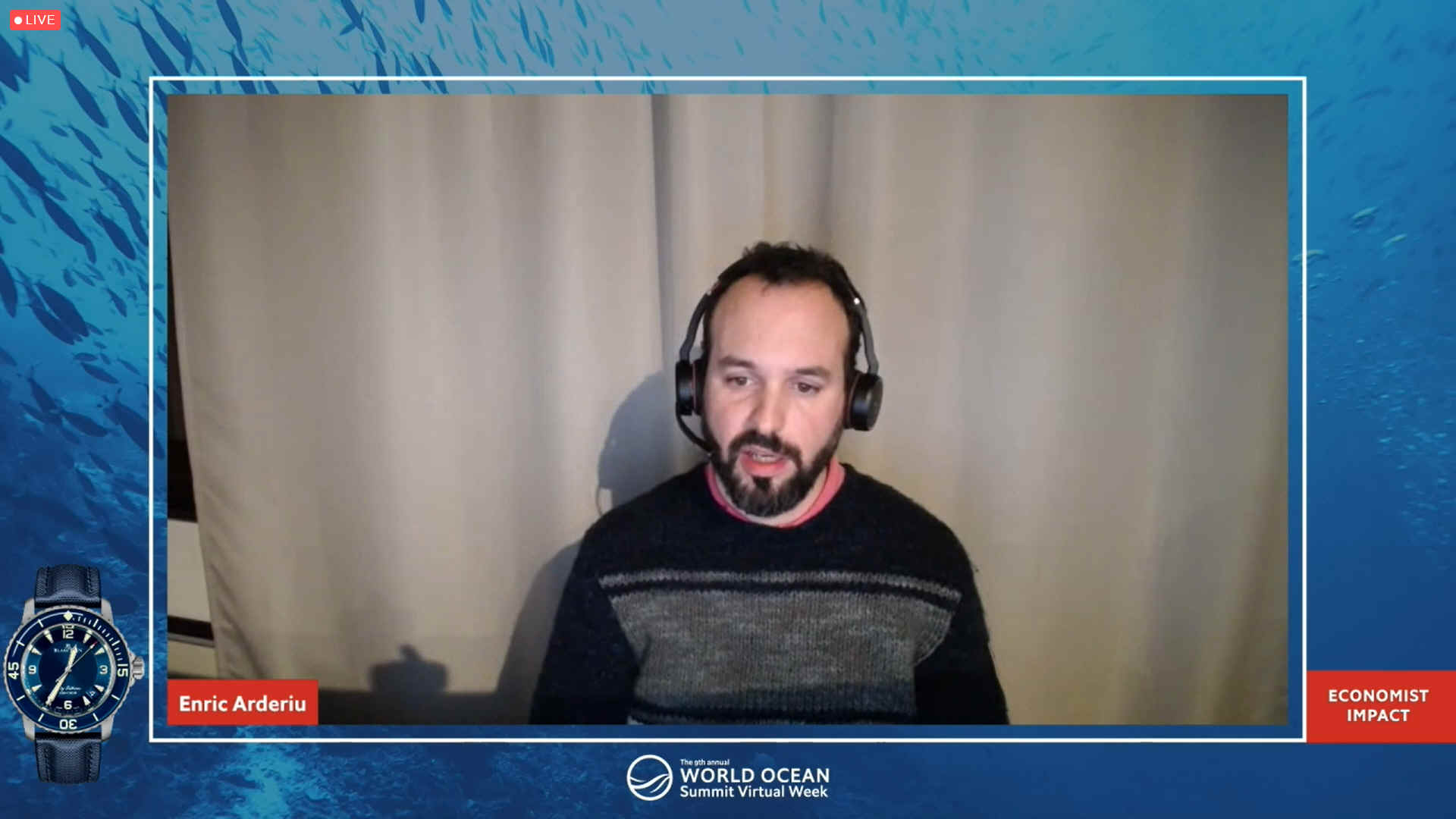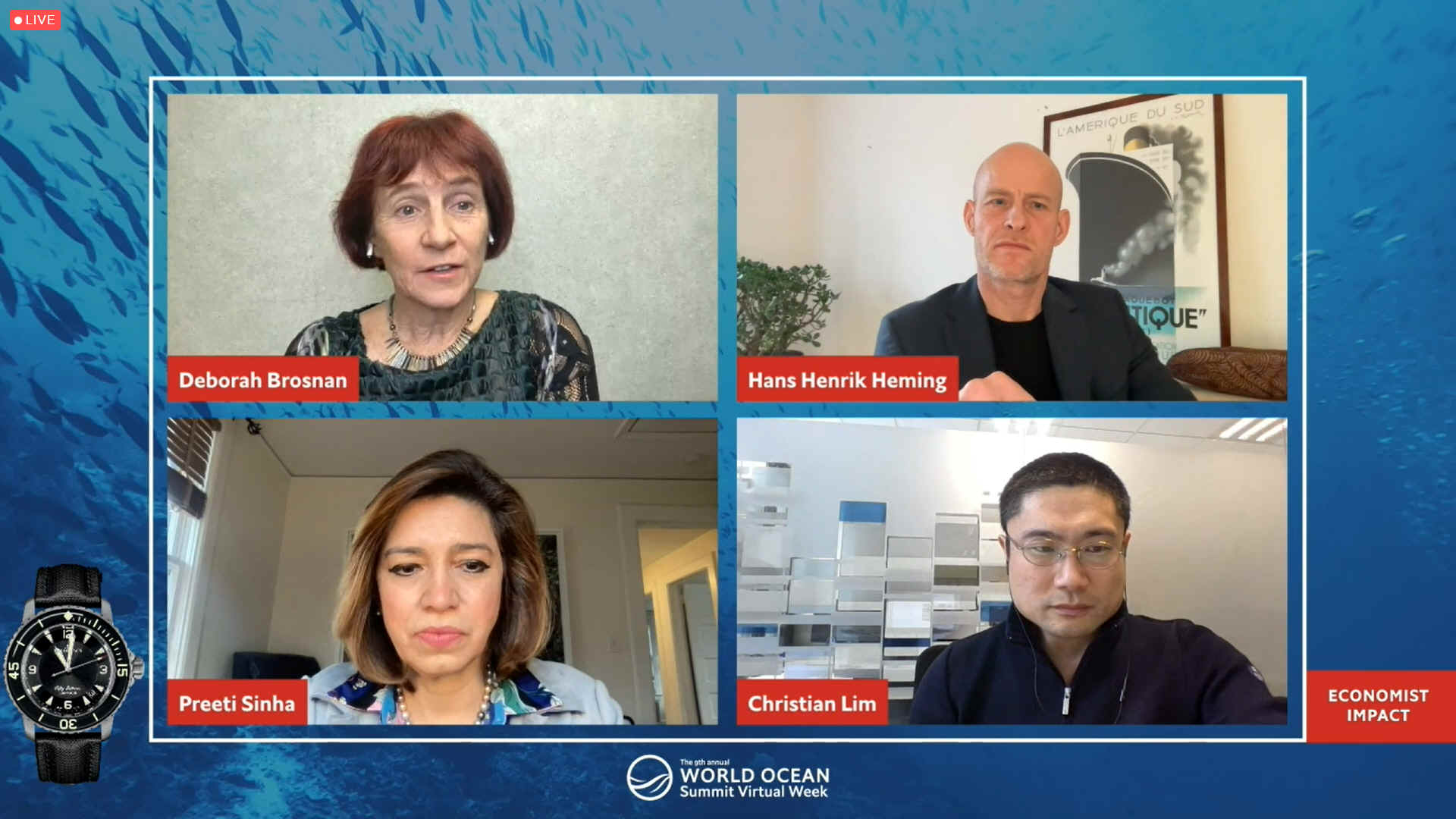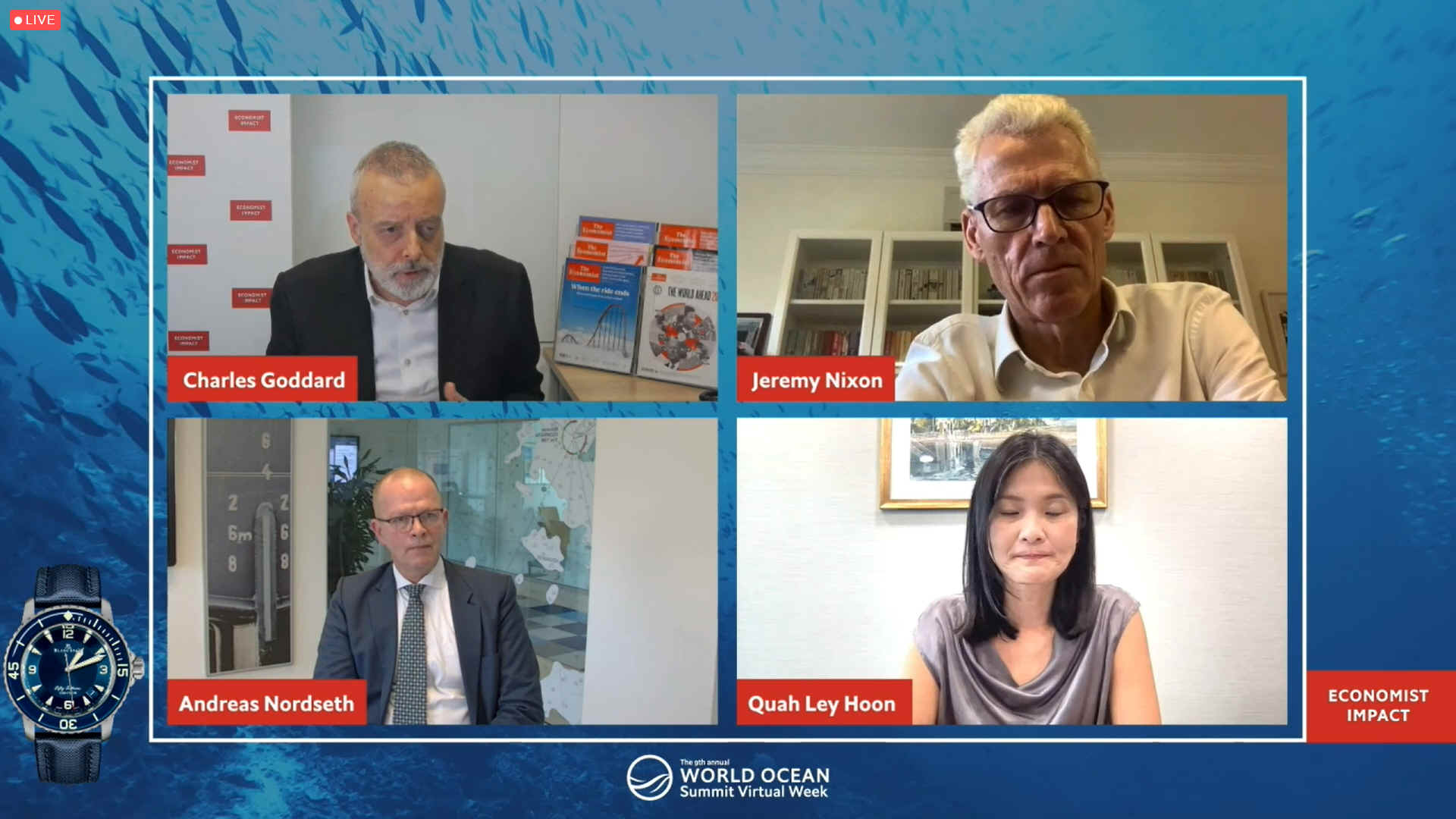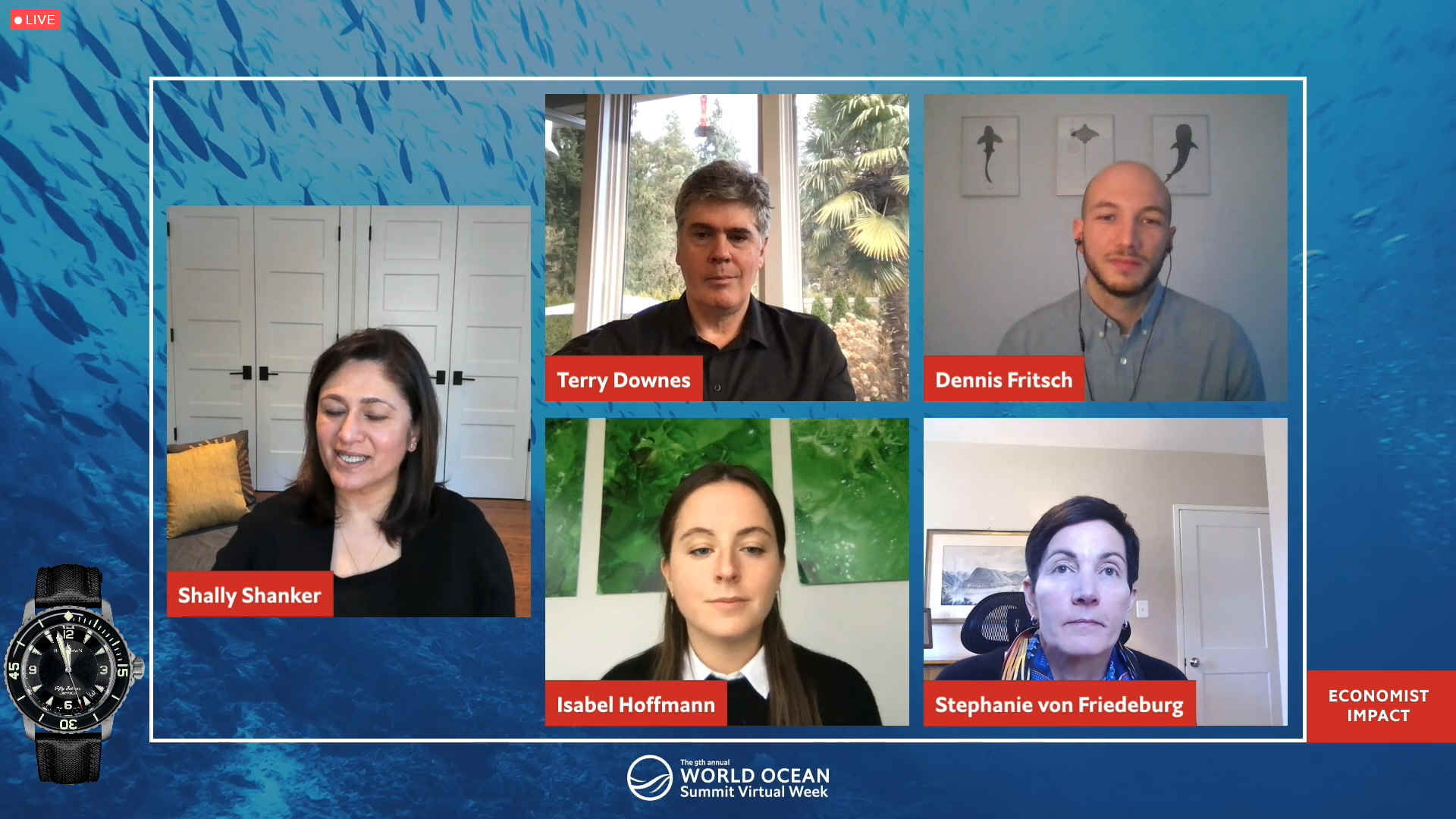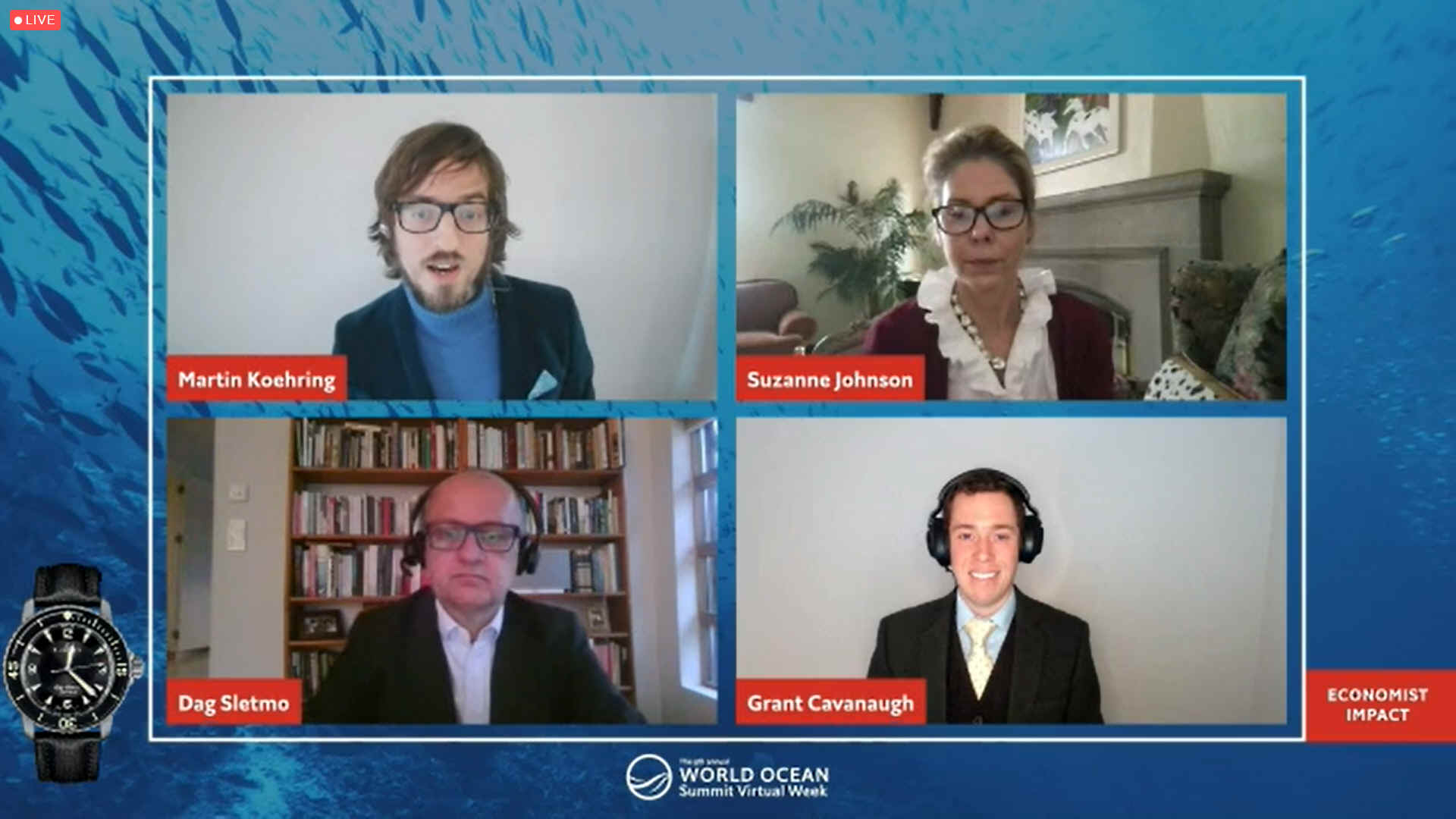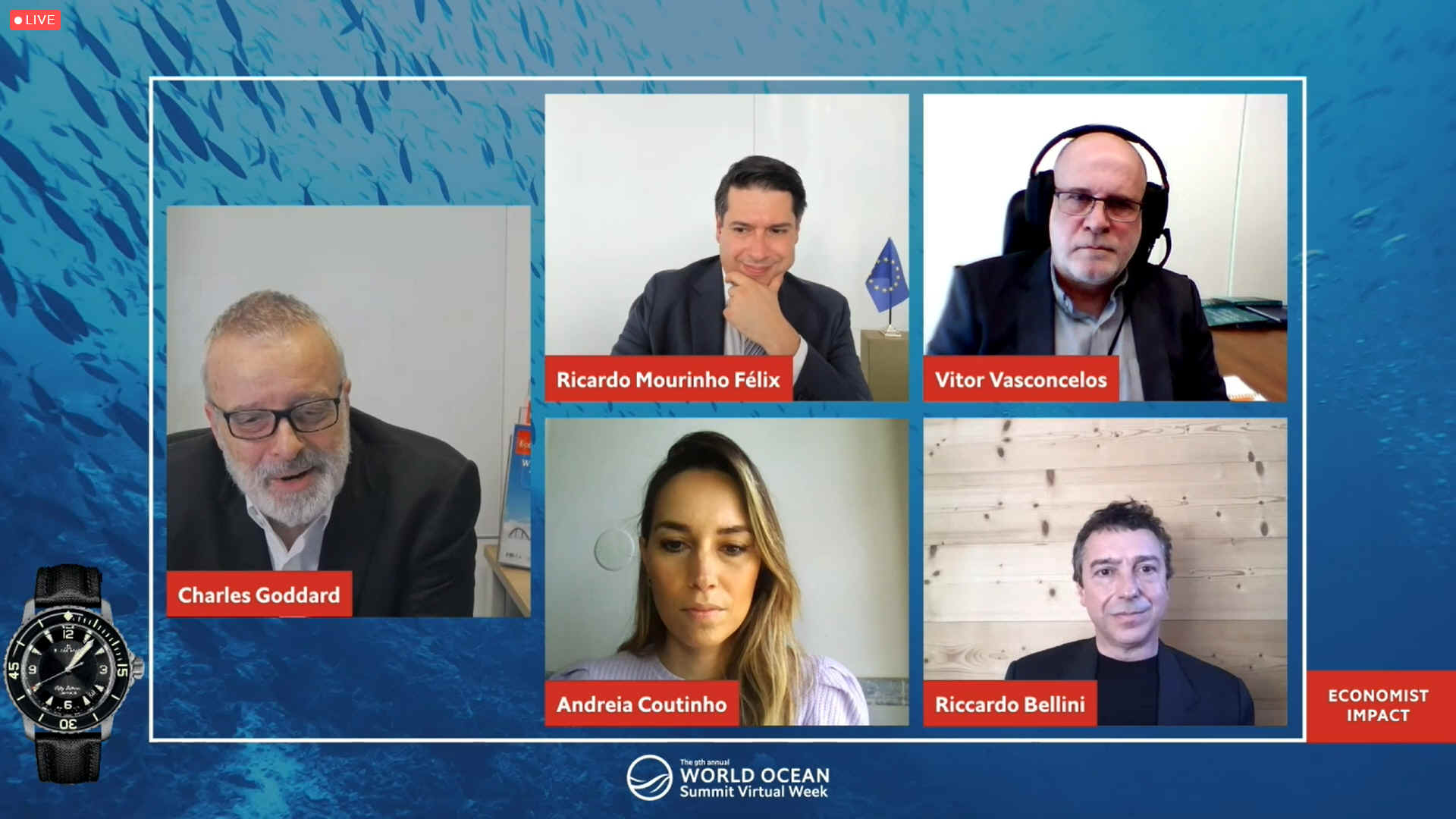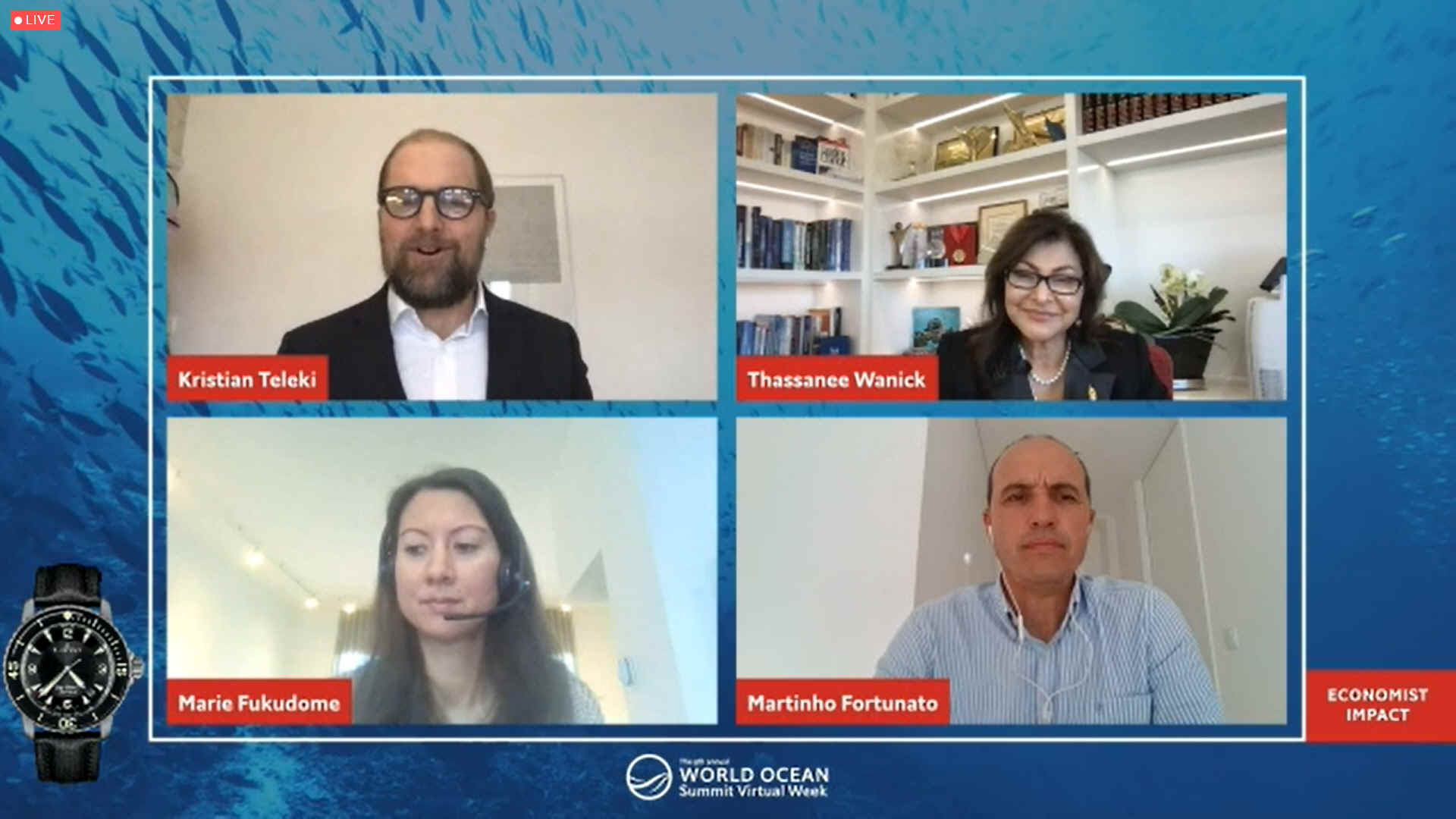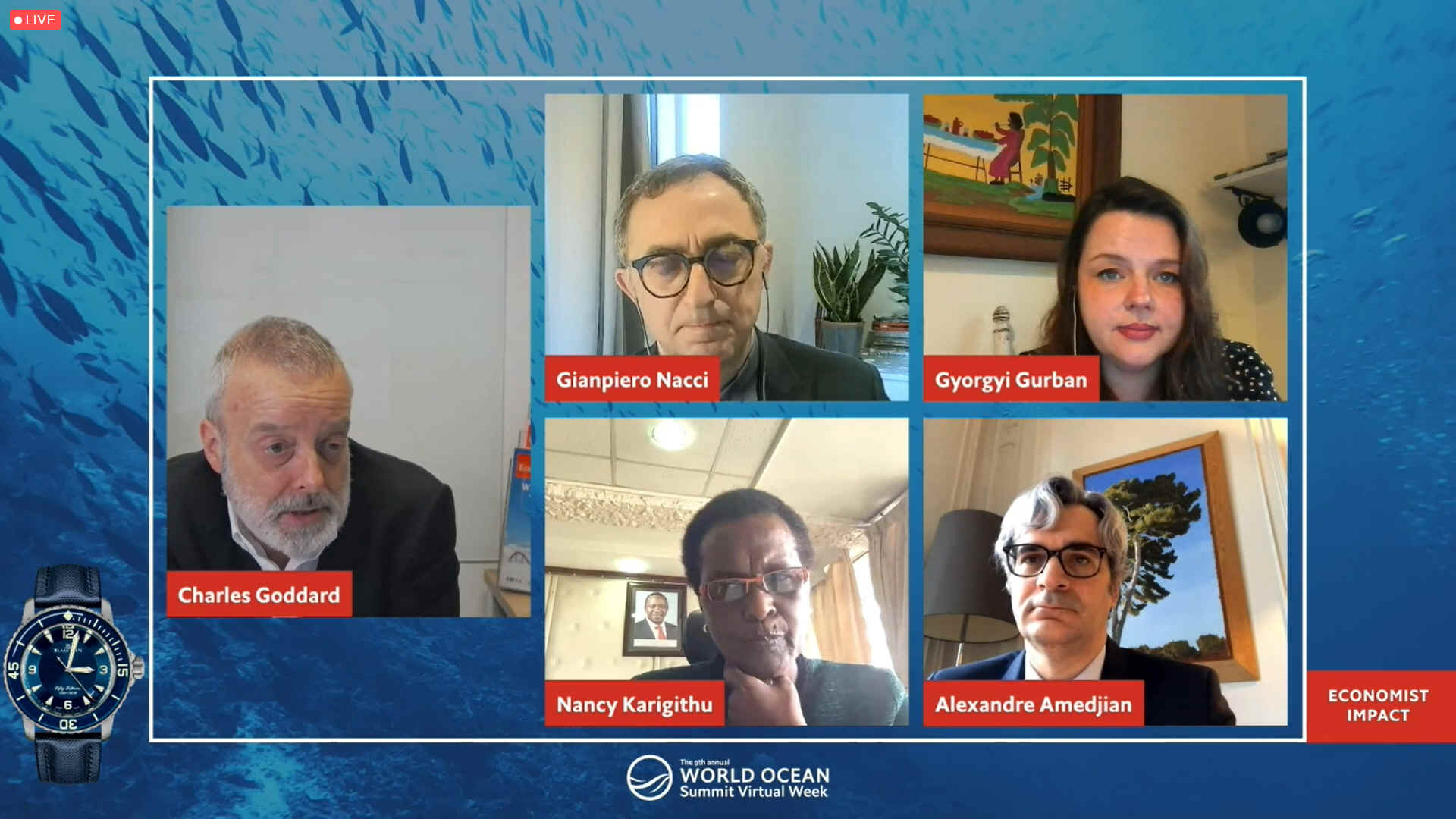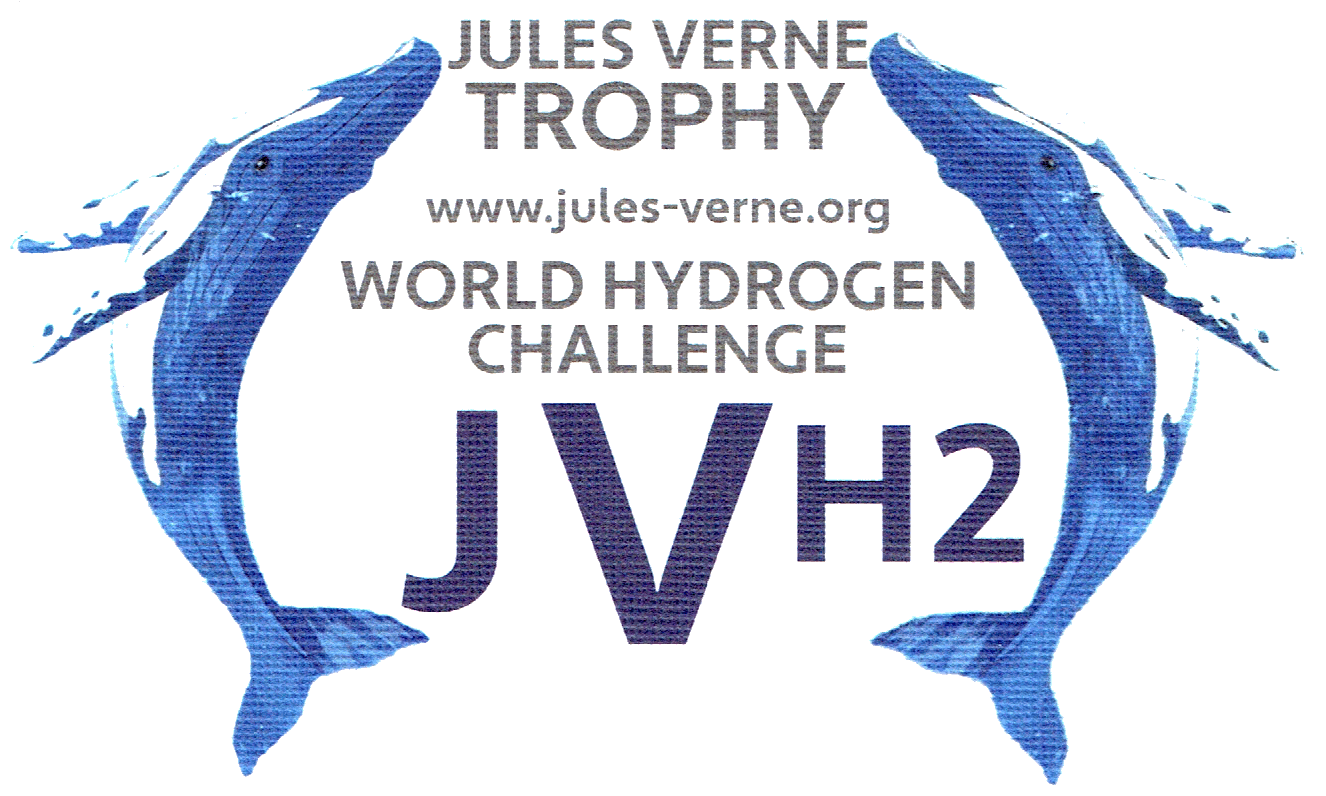|
CLIMATE CHANGE - 9th ANNUAL WORLD OCEAN SUMMIT 2022
PLEASE USE OUR A-Z INDEX TO NAVIGATE THIS SITE, OR RETURN HOME
|
|
|
|
FRIDAY
4th MARCH 2022
The ocean is a key weapon in the fight against climate change. Ocean-based mitigation options could reduce greenhouse gas emissions by more than 11bn tonnes per annum by 2050, according to the High Level Panel for a Sustainable Ocean Economy. Are world leaders paying enough attention to the ocean’s potential to fight climate change, and regulating and investing accordingly?
The 9th annual World Ocean Summit will feature six industry tracks focusing on:
Dorothee Herr is a Manager, Ocean and Climate Change for the IUCN. She chaired this panel on climate change and ocean conservation issues. Focussed on subsidies for harmful fishing techniques and fossil fuels.
Dorothée Herr joined IUCN’s Global Marine Program as a Marine Program Officer beginning of 2009. Despite being native of land locked Luxembourg, Dorothée is particularly interested in policy processes on ocean and climate change. In her capacity at IUCN Dorothée is following in particular the current UNFCCC negotiations and working towards including marine and coastal issues more centrally into the international climate change policy debate. She is active in a wide range of marine related climate change topics and initiatives, including on ocean warming and ocean acidification as well as on nature-based solutions to climate change adaptation and mitigation. Dorothée is also the lead author of IUCN’s publication on The Ocean and Climate Change. Tools and Guidelines for Action.
Dorothée received her masters degree in Environmental Change and Management from Oxford
University and her diploma in Geography from the University of Heidelberg in Germany. Fluent
in four languages Dorothée comes to IUCN with extensive experience within the private sector,
government agencies and NGOs having worked amongst others at the Luxembourg Ministry of
the Environment, Greenpeace and the International Network for Studies in Technology,
Environment, Alternatives, Development (CEPS/INSTEAD).
Vera Coelho is Oceana’s senior director for advocacy in Europe, where she leads the organisation’s campaigns and its policy, communications and science work. Ms Coelho is a political scientist with 15 years’ experience working with national, European and global environmental NGOs to protect freshwater and saltwater ecosystems. Before joining Oceana she worked with The Pew Charitable Trusts to secure EU support and leadership regarding marine conservation and fisheries management. Before that Ms Coelho worked with Wetlands International and with Seas At Risk on advocacy strategies for the adoption of EU environmental legislation, fisheries policy and regulation, and international treaties and agreements on climate and biodiversity.
Carlos M. Duarte holds the Tarek Ahmed Juffali Research Chair in Red Sea Ecology at King Abdullah University of Science and Technology in Saudi Arabia, and is executive director of the Global Coral R&D Accelerator Platform. Prof. Duarte has held academic positions in Spain, Australia, Norway and Denmark, and served as president of the American Society of Limnology and Oceanography in 2007-10. The author of more than 900 scientific papers, he develops ocean-based solutions to global challenges, including climate change and rebuilding the abundance of marine life.
Helen Agren has worked at the Swedish Government Offices for more than 20 years on issues such as the green economy, consumption and production, climate mitigation and adaptation, research, innovation and investment programmes. She has extensive experience working for sustainable development through the UN, OECD, EU and the Nordic Council of Ministers, as well as nationally, including chairing the Swedish government’s Council for Sustainable Development. In 2017 Ms Agren led Sweden’s preparations as co-president of the first UN Ocean conference, and since 2018 she has served as Sweden’s Ambassador for the Ocean, representing the government on the supervisory board of the Blue Action Fund.
Tourism has been hit by Covid 19, with cruise ships being seen as breeding grounds for infection. Other issues involve bunker fuels, that belch our black soot, highly visible while docked in ports on holiday destinations - visible signs of pollution for passengers to reflect on.
Ferries and coastal holiday boats also suffer from the same pollution issues. For this reason, and with the benefit of more ocean awareness, the public vote has resulted in the IMO introducing new anti air pollution measures aimed at zero emissions. This will have a marked effect on climate and acidification issues, provided that new clean ships are introduced as quickly as possible.
What is the big picture for ocean regeneration, and how can collaboration between governments, industry, investors, scientists and NGOs bring it about?
These sessions outlined International expertise, ambition and new strategies to restore ocean health.
Trawling
was held to be extremely harmful to climate change, by destroying the
subsurface eco-structure, that provides up to 80% of oxygen.
Oliver Morton is The Economist‘s briefings editor. Before coming to The Economist as energy and environment editor in 2009, he was the chief news and features editor of Nature, the international scientific journal. He specialises in the energy business, climate science and policy, and other green issues. He is the author of “Eating the Sun: How Plants Power the Planet”, a study of photosynthesis, its meanings and its implications, and “Mapping Mars: Science, Imagination and the Birth of a World”.
Brad currently serves as Executive Director and Chief Innovation Officer for Ocean Visions, a partnership of leading research and academic institutions and innovators, investors and practitioners of ocean restoration. Brad also leads the recently-founded Ocean-Climate Alliance which centers attention on the ocean as a critical pathway to arrest climate disruption and in so doing, restore the ocean.
He says there are two pathways to removing carbon dioxide, the first is biological, the second geological, by virtue of carbonate lock. But, at this time we don't know which path hold the most promise to remove the carbon mountain. Large algae, seaweeds, hold some promise, provided policy makers have the information to be able to define policies.
Hi from Cleaner Ocean Foundation. We are keen to see seaweed restoration. On the south coast of England, we have lost so much coastal flora, presumably from trawling, that we've had to make these conservation areas - that are unfortunately not well policed.
John Vermilye is a venture philanthropist and co-founder of the Gallifrey Foundation, which focuses on social enterprise education and marine conservation. He is also co-chair of Mission Blue. Mr Vermilye began his career in airline operations and was senior vice-president at the International Air Transport Association, IATA. After the September 11th attacks he was an advisor to the US Transportation Security Administration and created the Travel Sentry system for luggage locks used by security agencies globally.
A
blue carbon project needs to be robust, it needs to deliver measurable and
positive social impact. They need to be equitably transparent. But what is
the offset cost in ($15)
dollars?
Whitney Johnston is director of ocean sustainability for Salesforce, working to leverage the power of the company for the benefit of our oceans. Before joining Salesforce Ms Johnston served as ocean policy adviser to US Congressman Sam Farr, and she also worked for IdeaScale, leading strategy to help large organisations innovate. Ms Johnston is a former Knauss Marine Policy Fellow with the NOAA Sea Grant Programme.
Enric Arderiu is global head of environmental products at Mercuria. He leads a team covering a wide range of environmental products in compliance and voluntary markets, managing carbon pricing for customers and helping develop carbon-emission reduction and removal projects around the world. Prior to joining Mercuria Mr Arderiu led low-carbon trading at BP. He has been active in environmental markets since 2005, when he joined EcoSecurities.
A blue carbon project must have good partners. Who is on the ground and what
about the wider ecosystem. Fairness is an issue, with investors looking for
returns from a relationship. What you are doing today needs to be
sustainable in years to come. Carbon finance has a 40 year track record,
with a relatively soft
Deborah Brosnan is an environmental entrepreneur who brings cutting-edge science and technology to companies and governments to tackle climate change and sustainability. Following a long career in academia she launched a business, Deborah Brosnan & Associates, that advises clients and implements solutions globally that align nature, finance, technology and communities. Ms Brosnan is a board member of PADI AWARE Foundation and Ireland America Science Forum. She has featured as a commentator on television and has published in major academic journals and media publications, including the Washington Post and the Hill.
Charles Goddard imagines and builds the Group’s flagship initiatives, the purpose of which is to catalyse progress on key issues of the day. He works closely with partners on themes ranging from ageing and longevity to ocean health, focusing particularly on healthcare, the Anthropocene and the blue economy. Based in Hong Kong, Charles was previously editorial director, Asia, at the Economist Intelligence Unit, director of research in Asia, and managing director of the Economist Corporate Network, a peer network for senior executives. He is concurrently executive director of the Group’s World Ocean Initiative.
For ocean health to improve, greater investment needs to be made in organisations with sustainable operations. The decisions they make today will impact future generations and must be directed towards the sustainability of the blue economy. How are financial institutions making their investment decisions, and what more can be done to ensure a well-financed, sustainable future for the ocean?
Shally Shanker - Founder & Managing Partner - AiiM Partners
z
PANELISTS
- Using data to drive ocean conservation. Financing projects. Many multinational companies are demonstrating their commitment to the preservation of ocean resources, through their products, solutions, and engagement in the circular economy. What do they need from their ecosystem partners to maximise and accelerate this commitment? This session will open with an introduction from one multinational company outlining where they would like to be in five to ten years, followed by a discussion identifying how finance, science and technology can help them achieve their goals.
Sustainable tourism is generally thought of as niche and high-end, but the scale of mass tourism can bring considerable benefits. Larger travel corporations can drive transformation, leveraging financial resources, and greater lobbying power than smaller businesses. The classic negatives of mass tourism remain - can the benefits outweigh them?
Panel: the regenerative effect of tourism on the ocean: Tourism can threaten ocean health, but it can also be a powerful driver to support nature conservation. How does blue tourism feature in plans to achieve MPA targets and slow the decline in biodiversity?
The panel of speakers Tuesday 1st March 2022, provided some very interesting aspects of financing the change to zero carbon shipping, where it is by no means clear what fuels will prevail, and how aggressive the IMO will be in setting targets. Concessional finance might include a tie in with carbon taxes and R&D innovation funding - or even scrappage. z
CONTACTS
|
|
LINKS & REFERENCE
https://events.economist.com/world-ocean-summit/
|
|
|
|
|
|
PLEASE USE OUR A-Z INDEX TO NAVIGATE THIS SITE
This website is provided on a free basis as a public information service. copyright © Cleaner Oceans Foundation Ltd (COFL) (Company No: 4674774) 2022. Solar Studios, BN271RF, United Kingdom. COFL is a company without share capital whose founding objects are charitable, being not-for-profit.
|
